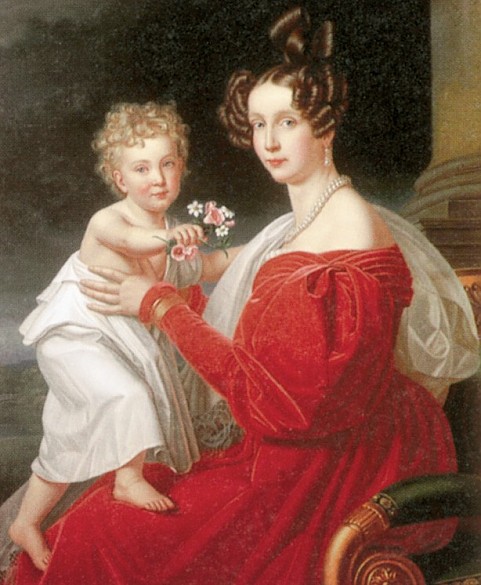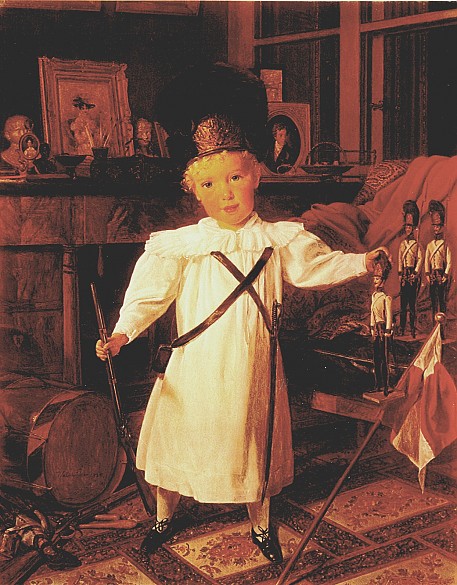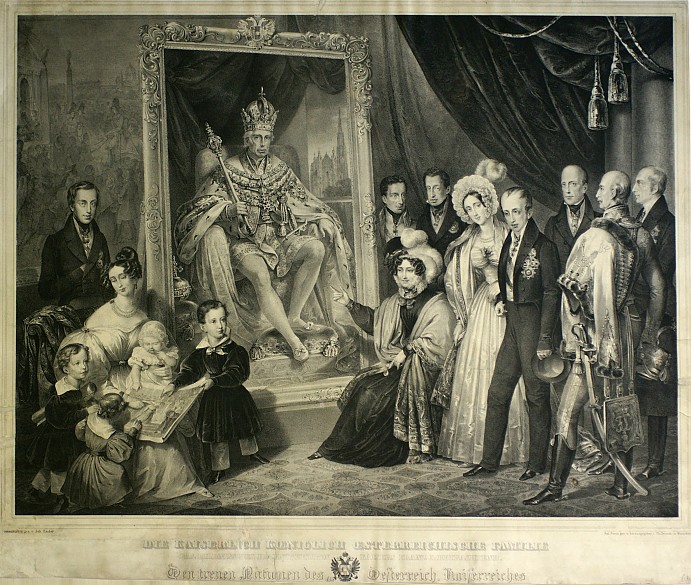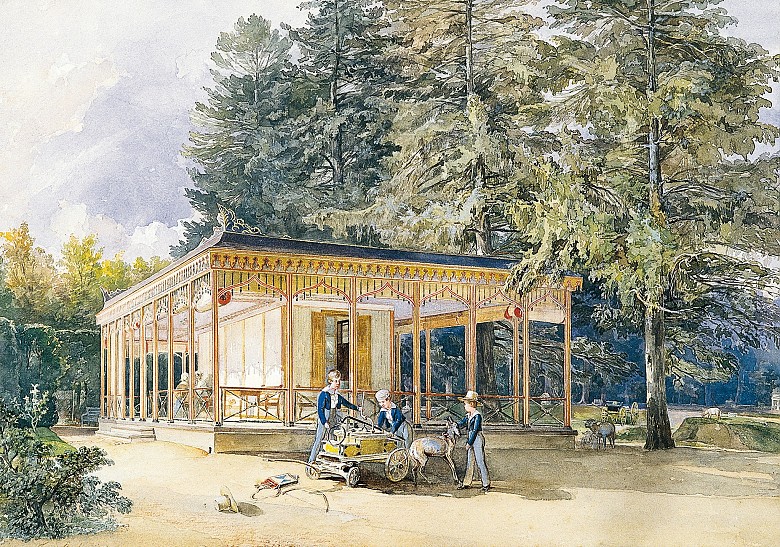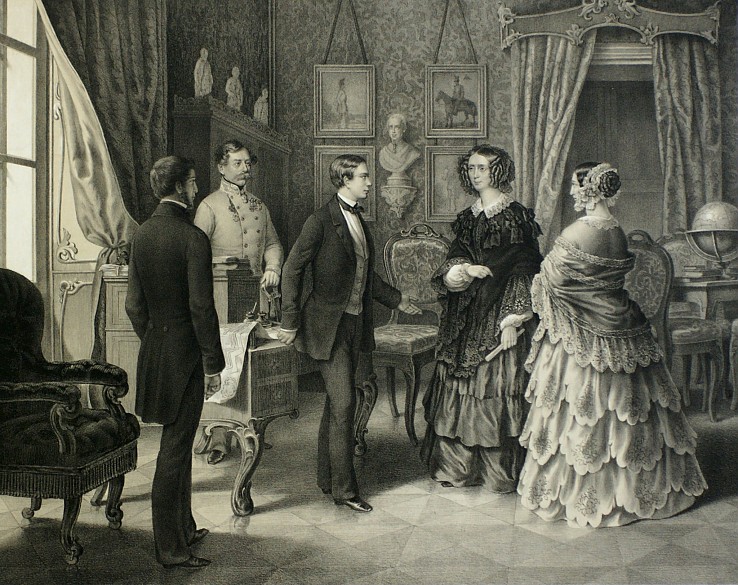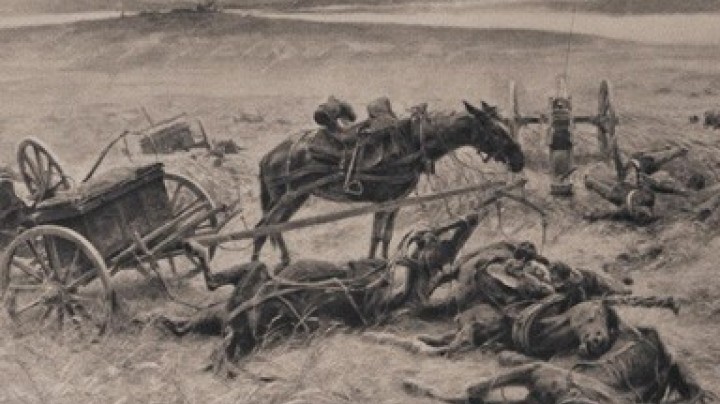Franz Joseph: childhood and upbringing
The news of Franz Joseph’s birth on 18 August 1830 was a cause of much rejoicing in the House of Habsburg.
Emperor Franz I, the proud grandfather, had been on the throne for 38 years when the little boy was born. His son (Franz Joseph’s uncle), the heir designate Crown Prince Ferdinand, was physically and mentally enfeebled, and was regarded as unfit to rule. Although he was married, it was thought very unlikely that the union would result in offspring.
The task of continuing the dynasty thus fell to Ferdinand’s next eldest brother, Archduke Franz Karl, and his wife, Archduchess Sophie. As Sophie had already suffered several miscarriages, the birth of this healthy, long-desired male infant came as a huge relief.
From his earliest childhood Franz Joseph was groomed as a potential successor to the imperial throne by his mother, who played a dominant role within the family and had a major influence on political events.
Franz Joseph was thus the centre of attention both of the family and of the whole court. His proud mother Sophie painstakingly recorded every detail of the physical and mental development of her first-born in her diaries – the infant was soon called ‘Gottheiterl’ (‘Little Deity’) by the people around him.
Franz Joseph’s Aja (the head of the imperial nursery and thus responsible for the upbringing and care of the child until the age of six), Baroness Louise Sturmfeder, a confidante of Archduchess Sophie who was devoted to the principles of the Catholic Church and the Habsburg dynasty, was an important and influential person for the little boy. Once, in an exuberant expression of childlike affection, little Franzi, as he was called by the family, told her: ‘When you die, I’ll have you stuffed!’
It was soon clear that the little archduke would one day become emperor, and thus the guidelines for his upbringing and education were worked out with great care. Franz Joseph’s ‘apprenticeship’ in preparation for the office of emperor is well documented. When he left the nursery, Count Franz von Bombelles was appointed as Ajo to oversee his education. The fundamentals of this upbringing were based on a sense of duty, religiosity and awareness of the dynastic legacy. The educational programme was put together by Archduchess Sophie and State Chancellor Prince Metternich. The young boy had a huge amount of material to absorb. One of the main emphases was on languages, starting with German and French, which was the lingua franca of the political and social elite during those times. Early on Czech and Hungarian were added, to be followed by Italian and Polish, ensuring that all the major languages within the Monarchy were covered. In addition, Franz Joseph also had tuition in Latin and Greek. He was also instructed in the general knowledge that was usual for those times and in arts subjects such as drawing – for which he demonstrated a striking aptitude – and music, which failed to kindle much enthusiasm in him.
Other important aspects included physical education (gymnastics, swimming, fencing, riding and dancing) and an introduction to the basics of military strategy in preparation for the officer training he was later to undergo. On the occasion of his thirteenth birthday he was made colonel-in-chief of the 3rd Dragoons. The military aspect of his education was foregrounded, as the future emperor was to be encouraged to see the army as the most important pillar of support for his rule. Metternich personally gave the young prince instruction in the political system.
Franz Joseph had little leisure time during his childhood. At the age of six he had thirteen to eighteen hours a week of lessons, at seven this increased to thirty-two hours, and by the age of sixteen his daily regime extended from six in the morning to nine at night.
Many biographers see Franz Joseph’s training as rigorous drilling that left no room for the imagination to develop and which moulded his adult personality. It certainly laid the foundations of Franz Joseph’s image of himself as a soldier and foremost servant of the state.
